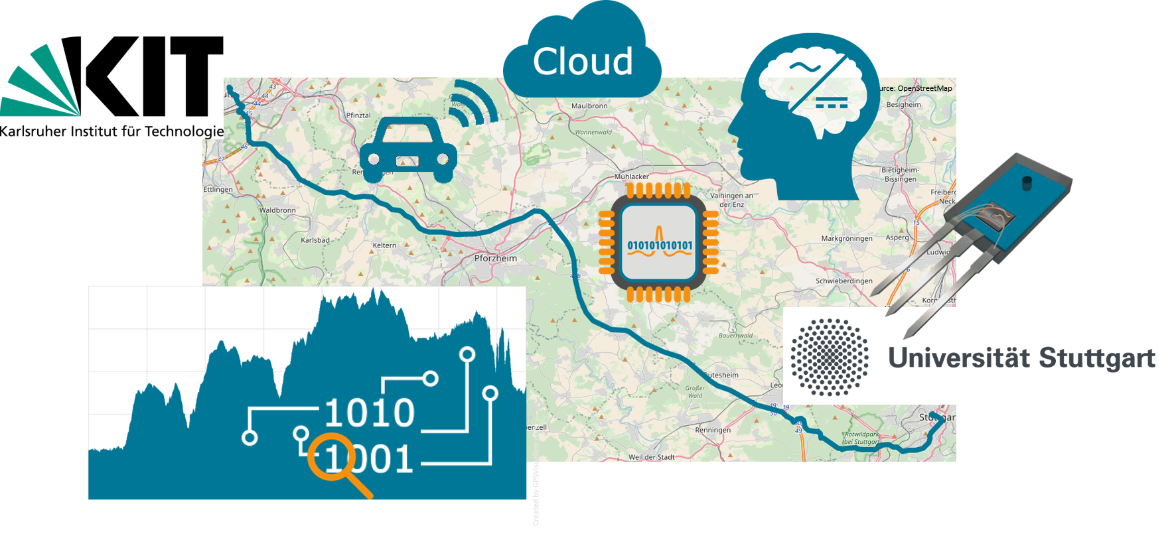- Partner
-
Institute for Information Processing Technologies (ITIV, KIT)
Institute for Power Electronics and Electrical Drives (ILEA, USTUTT) - Funding
- Project Duration
-
01.02.2022 – 31.01.2024
Project Goals
The LETSCOPE project aims to directly integrate power electronics as part of an intelligent, predictive system management.
On the one hand, the continuous acquisition of state-of-health parameters of the power electronics will be implemented, which will be reported to the intelligent management system. On the other hand, cloud-based services will be included in order to proactively influence the control of the power electronics by predicting the expected load and environmental changes.
ILH Participation
On the ILH side, a functional integration of wide-bandgap power transistors with drivers, sensors and protection functions (short-circuit current, overtemperature) in an intelligent power module is targeted.
Compared to conventional approaches, such a power module will allow characteristic transistor parameters to be read out during operation and offer the possibility of influencing the performance of the driver to a certain extent. Based on preliminary work, the necessary sensors and actuators are provided here for the first time to enable optimization during operation with respect to different goals, such as high efficiency, lifetime or performance.
The availability of large amounts of sensor data allows an evaluation via cloud-based AI. This is intended to identify patterns in the sensor data in the long term, which can be used to better characterize the state of the power electronics via AI than via the currently common, simple models. This can be achieved in particular because the current models do not use measurements of the state of the electronics, but are based purely on general simulation models. This allows to increase the lifetime of the power electronics and to avoid abrupt shutdowns (OCP, OTP).
The approach thus also leads to an increase in range, which ultimately promotes acceptance in society - a basic prerequisite for a paradigm shift in the mobility of the future.
Links
- Short introduction ICM LETSCOPE (German)
- ITIV
Institute for Information Processing Technologies (KIT) - ILEA
Institute for Power Electronics and Electrical Drives
Kontakt

Kevin Muñoz Barón
M.Sc.Research Assistant

Ingmar Kallfass
Prof. Dr.-Ing.Institute Director



